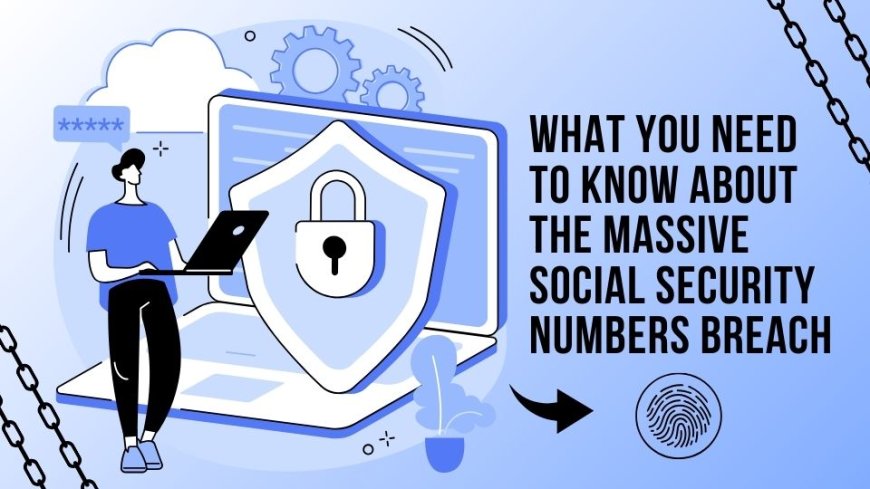What You Need to Know About the Massive Social Security Numbers Breach
A massive data breach involving Social Security numbers (SSNs) has sent shockwaves across the nation, putting millions of individuals at risk of identity theft and financial fraud.

This breach, considered one of the largest in recent history, has exposed sensitive personal information, including names, SSNs, and potentially other private details. As the fallout continues, it’s crucial for those affected to understand the implications and take immediate steps to protect themselves.
Social Security number data breach
The breach was reported by a leading cybersecurity firm, which discovered that hackers had gained unauthorized access to a government or corporate database containing Social Security numbers. The breach is believed to have occurred several months before it was detected, allowing cybercriminals ample time to exploit the compromised data.
While the exact source of the breach is still under investigation, early reports suggest that it could be linked to a phishing attack or a vulnerability in the database's security protocols. The full scope of the breach, including the number of individuals affected, is still being assessed.
Why This Matters
Social Security numbers are a critical piece of personal information that, when combined with other data, can be used to commit various forms of identity theft, such as opening fraudulent credit accounts, filing false tax returns, and even accessing medical records. Unlike a password, an SSN cannot be easily changed, making it a particularly valuable target for cybercriminals.
For individuals whose SSNs have been compromised, the risk of identity theft can persist for years. It’s essential to act quickly to minimize potential damage.
What You Should Do Immediately
Check If You Were Affected:
Stay alert for notifications from the organization involved in the breach. They are legally required to inform you if your data is compromised.
You can also use online tools or contact the organization directly to confirm whether your SSN was part of the breach.
Monitor Your Financial Accounts:
Regularly check your bank accounts, credit card statements, and other financial records for any unauthorized transactions.
Consider setting up alerts with your bank or credit card issuer to receive notifications of suspicious activity.
Place a Fraud Alert or Credit Freeze:
A fraud alert on your credit report informs creditors to take extra steps to verify your identity before issuing credit in your name. This is typically free and lasts for one year.
A credit freeze restricts access to your credit report, making it harder for identity thieves to open accounts in your name. This is also free and can be lifted when needed.
Obtain and Review Your Credit Report:
Request a free credit report from all three major credit reporting agencies (Equifax, Experian, and TransUnion) at AnnualCreditReport.com. Carefully review your report for any unfamiliar accounts or inquiries.
Consider Identity Theft Protection Services:
Enroll in an identity theft protection service that monitors your personal information, provides alerts, and assists with recovery if your identity is stolen.
File Your Taxes Early:
File your tax returns as soon as possible to prevent criminals from filing in your name and claiming a refund. If you suspect your SSN has been used fraudulently, contact the IRS immediately.
Stay Informed:
Follow updates from trusted news sources and the organization involved in the breach. They may provide additional recommendations or resources to help protect your information.
Long-Term Considerations
While these immediate actions are crucial, the impact of an SSN breach can linger. Remain vigilant and continue to monitor your credit and financial accounts over the coming months and years. Consider using credit monitoring services on an ongoing basis to detect any unusual activity.
Additionally, advocates for stronger data protection measures and cybersecurity practices at both the governmental and corporate levels. The increasing frequency and severity of data breaches underscore the need for robust safeguards to protect sensitive information.
Conclusion
The massive Social Security numbers breach is a sobering reminder of the vulnerabilities inherent in our digital age. By taking proactive steps to protect your identity and financial information, you can mitigate the risks and safeguard your future. Stay vigilant, stay informed, and take action now to protect yourself from the potential fallout of this unprecedented breach.

